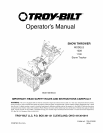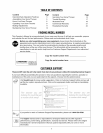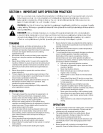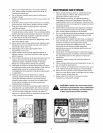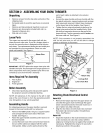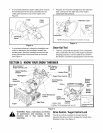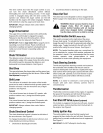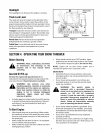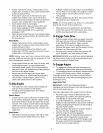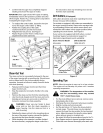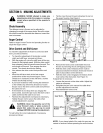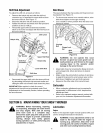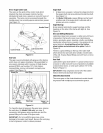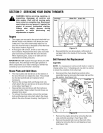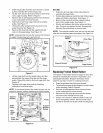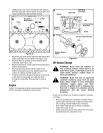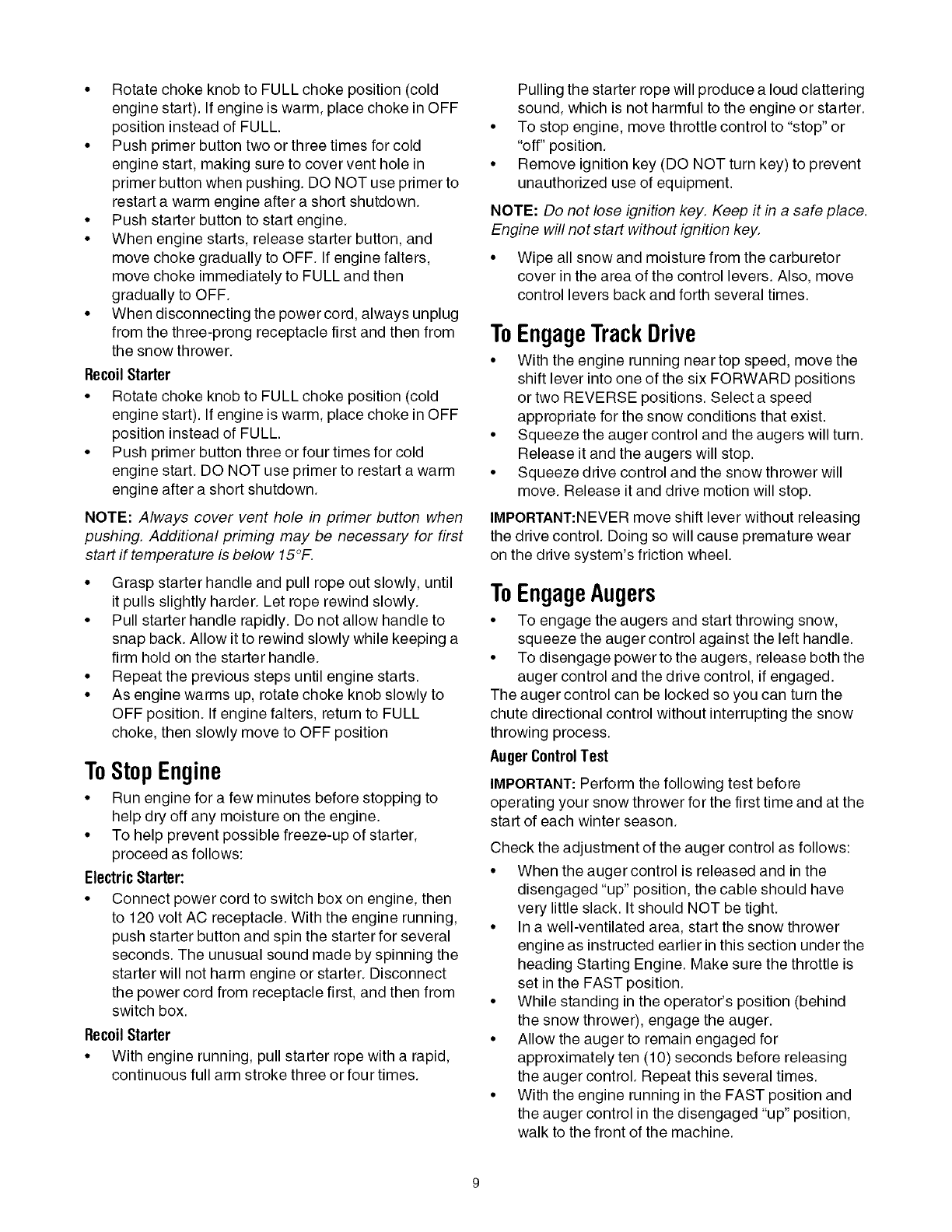
• Rotatechokeknobto FULLchokeposition(cold
enginestart).Ifengineiswarm,placechokeinOFF
positioninsteadofFULL.
• Pushprimerbuttontwoorthreetimesforcold
enginestart,makingsuretocoverventholein
primerbuttonwhenpushing.DONOTuseprimerto
restartawarmengineafterashortshutdown.
• Pushstarterbuttontostartengine.
• Whenenginestarts,releasestarterbutton,and
movechokegraduallytoOFF.Ifenginefalters,
movechokeimmediatelytoFULLandthen
graduallytoOFF.
• Whendisconnectingthepowercord,alwaysunplug
fromthethree-prongreceptaclefirstandthenfrom
thesnowthrower.
RecoilStarter
• Rotate choke knob to FULL choke position (cold
engine start). If engine is warm, place choke in OFF
position instead of FULL.
• Push primer button three or four times for cold
engine start. DO NOT use primer to restart a warm
engine after a short shutdown.
NOTE: Always cover vent hole in primer button when
pushing. Additional priming may be necessary for first
start if temperature is below 15°F.
• Grasp starter handle and pull rope out slowly, until
it pulls slightly harder. Let rope rewind slowly.
• Pull starter handle rapidly. Do not allow handle to
snap back. Allow it to rewind slowly while keeping a
firm hold on the starter handle.
• Repeat the previous steps until engine starts.
• As engine warms up, rotate choke knob slowly to
OFF position. If engine falters, return to FULL
choke, then slowly move to OFF position
ToStopEngine
• Run engine for a few minutes before stopping to
help dry off any moisture on the engine.
• To help prevent possible freeze-up of starter,
proceed as follows:
Electric Starter:
• Connect power cord to switch box on engine, then
to 120 volt AC receptacle. With the engine running,
push starter button and spin the starter for several
seconds. The unusual sound made by spinning the
starter will not harm engine or starter. Disconnect
the power cord from receptacle first, and then from
switch box.
RecoilStarter
• With engine running, pull starter rope with a rapid,
continuous full arm stroke three or four times.
Pulling the starter rope will produce a loud clattering
sound, which is not harmful to the engine or starter.
• To stop engine, move throttle control to "stop" or
"off" position.
• Remove ignition key (DO NOT turn key) to prevent
unauthorized use of equipment.
NOTE: Do not lose ignition key. Keep it in a safe place.
Engine will not start without ignition key.
• Wipe all snow and moisture from the carburetor
cover in the area of the control levers. Also, move
control levers back and forth several times.
ToEngageTrackDrive
• With the engine running near top speed, move the
shift lever into one of the six FORWARD positions
or two REVERSE positions. Select a speed
appropriate for the snow conditions that exist.
• Squeeze the auger control and the augers will turn.
Release it and the augers will stop.
• Squeeze drive control and the snow thrower will
move. Release it and drive motion will stop.
IMPORTANT:NEVER move shift lever without releasing
the drive control. Doing so will cause premature wear
on the drive system's friction wheel.
ToEngageAugers
• To engage the augers and start throwing snow,
squeeze the auger control against the left handle.
• To disengage power to the augers, release both the
auger control and the drive control, if engaged.
The auger control can be locked so you can turn the
chute directional control without interrupting the snow
throwing process.
AugerControl Test
IMPORTANT:Perform the following test before
operating your snow thrower for the first time and at the
start of each winter season.
Check the adjustment of the auger control as follows:
• When the auger control is released and in the
disengaged "up" position, the cable should have
very little slack. It should NOT be tight.
• In a well-ventilated area, start the snow thrower
engine as instructed earlier in this section under the
heading Starting Engine. Make sure the throttle is
set in the FAST position.
• While standing in the operator's position (behind
the snow thrower), engage the auger.
• Allow the auger to remain engaged for
approximately ten (10) seconds before releasing
the auger control. Repeat this several times.
• With the engine running in the FAST position and
the auger control in the disengaged "up" position,
walk to the front of the machine.



